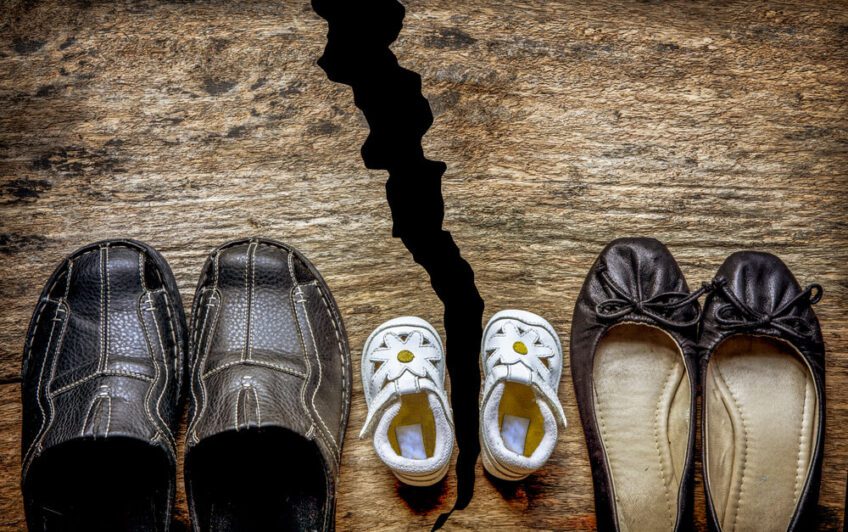Parents, whose children are the subject of Child Arrangements Orders made by the Family Court, have been understandably concerned about their ability to meet the requirements of these court orders safely during the current coronavirus crisis.
Who should my children stay with during the coronavirus lockdown?
Andy Stout, family lawyer at Tallents Solicitors noted that he had received many more enquiries than usual from parents who were seeking clarification on how they should comply with existing court orders for child arrangements while still adhering to the government’s staying at home guidance.
 On 24 March 2020, the Rt. Hon. Sir Andrew McFarlane President of the Family Division and Head of Family Justice, made a short statement intended to offer advice. But, as the circumstances of each child and family will differ, any advice can only be in the most general form, he said.
On 24 March 2020, the Rt. Hon. Sir Andrew McFarlane President of the Family Division and Head of Family Justice, made a short statement intended to offer advice. But, as the circumstances of each child and family will differ, any advice can only be in the most general form, he said.
- Parental responsibility for a child who is the subject of a Child Arrangements Order [‘CAO’] made by the Family Court rests with the child’s parents and not with the court.
- The country is in the middle of a Public Health crisis on an unprecedented scale. The expectation must be that parents will care for children by acting sensibly and safely when making decisions regarding the arrangements for their child and deciding where and with whom their child spends time.
Parents must abide by the ‘Rules on Staying at Home and Away from Others’ issued by the government on 23 March [‘the Stay at Home Rules’]. In addition to these Rules, advice about staying safe and reducing the spread of infection has been issued and updated by Public Health England and Public Health Wales [‘PHE/PHW’]. - The Stay at Home Rules have made the general position clear: it is no longer permitted for a person, and this would include a child, to be outside their home for any purpose other than essential shopping, daily exercise, medical need or attending essential work.
- Government guidance issued alongside the Stay at Home Rules on 23 March deals specifically with child contact arrangements. It says:
“Where parents do not live in the same household, children under 18 can be moved between their parents’ homes.”
This establishes an exception to the mandatory ‘stay at home’ requirement; it does not, however, mean that children mustbe moved between homes. The decision whether a child is to move between parental homes is for the child’s parents to make after a sensible assessment of the circumstances, including the child’s present health, the risk of infection and the presence of any recognised vulnerable individuals in one household or the other. - More generally, the best way to deal with these difficult times will be for parents to communicate with one another about their worries, and what they think would be a good, practical solution. Many people are very worried about Coronavirus and the health of themselves, their children and their extended family. Even if some parents think it is safe for contact to take place, it might be entirely reasonable for the other parent to be genuinely worried about this.
- Where parents, acting in agreement, exercise their parental responsibility to conclude that the arrangements set out in a CAO should be temporarily varied they are free to do so. It would be sensible for each parent to record such an agreement in a note, email or text message sent to each other.
- Where parents do not agree to vary the arrangements set out in a CAO, but one parent is sufficiently concerned that complying with the CAO arrangements would be against current PHE/PHW advice, then that parent may exercise their parental responsibility and vary the arrangement to one that they consider to be safe. If, after the event, the actions of a parent acting on their own in this way are questioned by the other parent in the Family Court, the court is likely to look to see whether each parent acted reasonably and sensibly in the light of the official advice and the Stay at Home Rules in place at that time, together with any specific evidence relating to the child or family.
- Where, either as a result of parental agreement or as a result of one parent on their own varying the arrangements, a child does not get to spend time with the other parent as set down in the CAO, the courts will expect alternative arrangements to be made to establish and maintain regular contact between the child and the other parent within the Stay at Home Rules, for example remotely – by Face-Time, WhatsApp Face-Time, Skype, Zoom or other video connection or, if that is not possible, by telephone.
Sir Andrew highlighted that parents should note where coronavirus restrictions cause the letter of a court order to be varied, then the spirit of the order should nevertheless be delivered by making safe alternative arrangements for the child.
How do I comply with the Child Arrangement Order during the coronavirus lockdown?
Andy encourages parents to co-parent effectively during the coronavirus crisis and to provide as much stability as possible by maintaining the child’s routine during these unprecedented times. Parents should try to amicably find solutions that protect the child’s health and welfare while also being in the child’s best interests.
Tallents Solicitors is here for you during the coronavirus lockdown
The family law experts are still here for parents with questions during the coronavirus lockdown. Our staff are working remotely and direct dial numbers can be found on our individual staff profile pages, or you can ring the office numbers at Newark, Southwell or Mansfield to be put through to a member of staff. Alternatively, you can also email us.
For parents seeking further family law advice, then Tallents Solicitors offers a free family law clinic every Tuesday evening between 5-7pm. During the coronavirus crisis, phone 01636 813411 to speak in confidence to a family law specialist.



